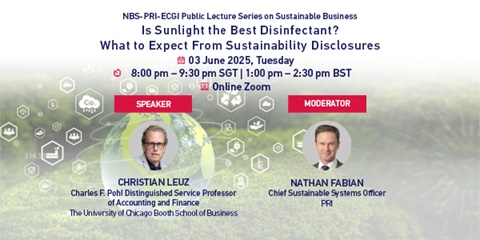Amid geopolitical tensions, Singapore firms take no sides
Poll finds many are dependent on both the US and Chinese economies doing well
After United States House Speaker Nancy Pelosi's visit to Taiwan early last month, the ensuing rise in tensions in the region became "alarming", said Mr Kurt Wee, president of the Association of Small and Medium Enterprises.
It rattled some start-ups enough for them to review their sources of capital, and caused businesses to re-examine markets and supply chains, he noted.
"A substantial number of Singapore companies do business with China, buy or supply supplies to China," he said.
"We also have a lot of companies that supply to American multinationals, or sub-contractors that make components and supplies for these large companies here."
Semiconductor and electronics companies, or firms that procure materials from one market to make goods to sell to another, such as furniture manufacturers, are likely the first to bear the brunt, said Mr Wee.
His words are borne out in a regional survey of 1,200 business people by Milieu Insight for The Straits Times conducted over two weeks from Aug 26.
It found that Singapore companies are the most troubled by the impact of geopolitics on supply chains, such as getting raw materials and getting them on time.
In Vietnam, a high number of businesses also worry about the effect on foreign capital, while Indonesian and Thai companies are most anxious about falling demand.
Mr Wong Wai Meng, who chairs tech association SGTech, said: "Business uncertainties are increasing due to geopolitical tensions, inflationary pressures, supply chain disruptions and more protectionist policies globally. We see companies expressing concerns."
In Milieu's survey, local companies top the list by far - at 44 per cent - in saying they are equally dependent on both the US and Chinese economies doing well for their company's health.
The second-biggest group to say so - Philippine respondents - was a distant 26 per cent.
Most respondents in Indonesia, the Philippines, Thailand and Malaysia said the performance of the two big economies has no impact on their firms, while in Vietnam, most said they need the US to do well.
Dr Felix Tan, a political analyst at Nanyang Technological University (NTU), said: "In the past, it was very clear that the strength of the US was much higher. Over time since the 1990s and into the 21st century, we see the rising power of China, and Singapore feels that it needs to tap the Chinese economy as well.
"You come to a point where there is parity between the US and China, and Singapore sees itself caught in the middle."
Dr Clive Choo, who teaches business at NTU, said the full fallout from Mrs Pelosi's visit may be felt only in the middle of next year due to the bullwhip effect, or lapses as the supply chain reacts to changes in demand.
As the global giants face off, the squeeze could come from both ends, say industry players. In recent months, pressures could be felt from the US side as its government tightened sanctions and raised its rhetoric against China.
In 2016, when Singapore's military vehicles were impounded in Hong Kong, some businesses reported hindrances in getting goods to the Chinese market.
Dr Choo said companies need to show they are aligned with Singapore's neutrality and say so clearly, while explaining the commercial grounds of business decisions to avoid misunderstandings.
"Don't mix your business decision with political inclination. As long as we can split that (politics and business), we are in good shape. Maintaining the neutrality is super important," he said.
Mr Kho Choon Keng, president of the Singapore Chinese Chamber of Commerce and Industry, said: "Upholding and conserving our sovereignty is fundamental to our country and thus, we need to have a consistent principle to stand firm on while connecting to the world as a small nation."
Across South-east Asia, with the exception of Thailand, countries including Singapore said their governments have effectively softened the impact of geopolitics on their economies, noted the Milieu survey.
The US is Singapore's No. 1 foreign direct investor, sinking over $528 billion into the country in 2020. China, while investing $44 billion here in 2020, has been the largest recipient of both trade and overseas investments from Singapore since 2013.
Enterprise Singapore chief executive Png Cheong Boon said local businesses have already been diversifying supply chains and stepping into new markets, including Latin America and Africa, over the past two years as China's borders have been closed due to the pandemic.
That will make them more resilient and less vulnerable to single-market disruptions, he added.
"That said, Singapore companies remain confident about China's long-term prospects, and are keen to restart their investments and projects when the situation allows," he added.
Singapore Business Federation (SBF) CEO Lam Yi Young said companies' appetite to venture overseas has not tapered despite geopolitical events, with interest in doing business in China remaining high.
The SBF has facilitated over 80 overseas projects this year and is leading 50 companies to the China International Import Expo in November, five more than last year.
Global companies in technology and finance are looking to Singapore as a hedge to Hong Kong amid tensions, and this is expected to continue into the longer term, say analysts.
Small as Singapore is, local players agree that its businesses have a role in bringing stability to the region. "We must be realistic about what Singapore can do. We are very small," said Mr Joseph Gan, CEO of cyber-security firm V-Key Solutions. "But businesses can always act as bridges."
Source: The Straits Times



.tmb-listing.jpg?Culture=en&sfvrsn=8b2cb369_1)


